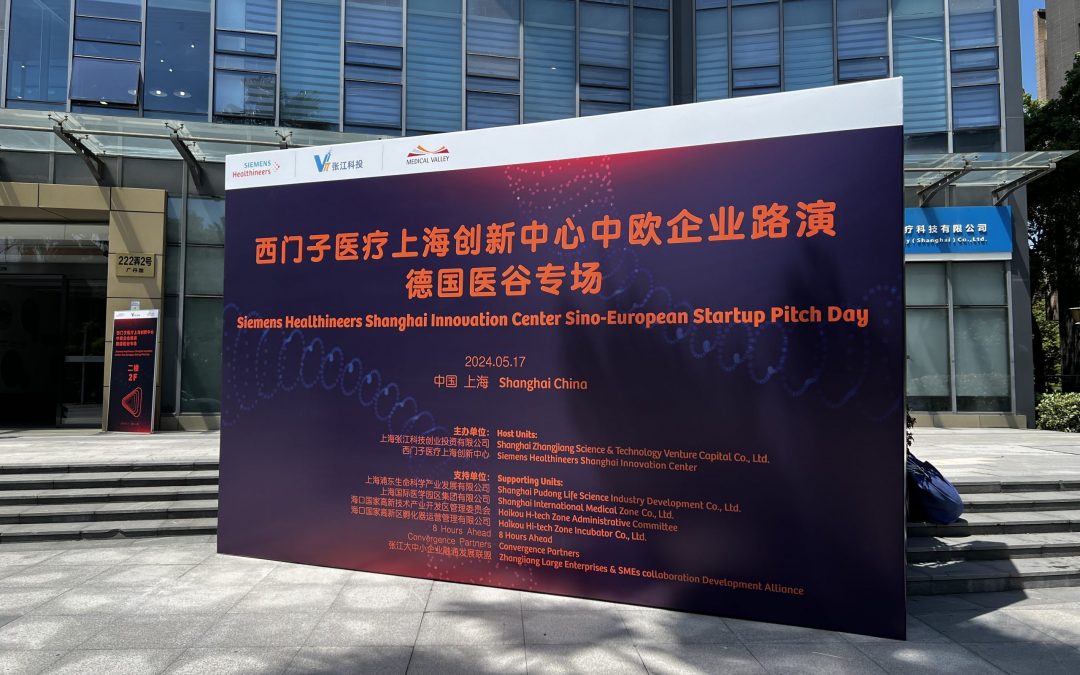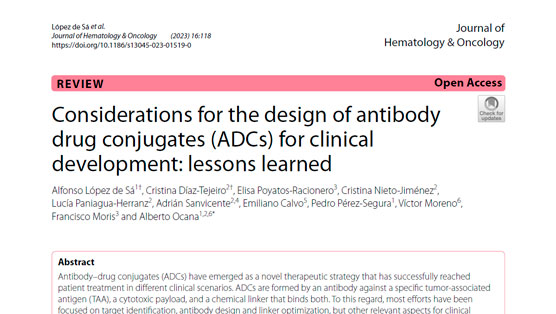We are proud to announce our significant contribution to a seminal scientific paper focused on Antibody-Drug Conjugates (ADCs) in the clinical landscape. The paper delves, among other aspects, into an extensive analysis of the physicochemical properties of ADC payloads, yielding crucial insights pivotal for the strategic design and advancement of ADC therapies.
As a leader in innovative biotechnological solutions, CancerAppy team played a high relevant role in the collaborative effort that culminated in this comprehensive examination. The paper’s findings promise to revolutionize the development and optimization of ADCs, offering a clearer understanding of the relationship between payload properties and therapeutic efficacy.
ADCs represent a pivotal therapeutic advancement, effectively applied across diverse clinical scenarios. Comprising antibodies targeting tumor-associated antigens (TAAs), cytotoxic payloads, and binding linkers, ADCs have primarily focused research on target identification, antibody design, and linker optimization, leaving other critical clinical facets understudied. In this work, the researches performed a comprehensive assessment of approved ADCs and analyzed properties such as payload physicochemical attributes, potency, drug antibody ratio (DAR), exposure–response correlations, and development strategies. Optimal clinical candidates feature ideal payload properties and cleavable linkers, particularly impactful in low TAA expression contexts. Additionally, early clinical tactics, including altered dosing schedules, aim for enhanced efficiency. This analysis emphasizes overlooked facets essential for ADC cancer development, proposing avenues for refinement.
Dr. Elisa Poyatos, Chief Scientific Officer at CancerAppy, expressed enthusiasm about the company’s involvement in this groundbreaking endeavor, stating, “Our team’s commitment to pushing the boundaries of scientific knowledge has motivated our dive into the intricate details of ADCs. By conducting thorough analysis and partnering with respected researchers, we’ve uncovered crucial understandings about the physicochemical characteristics of ADC payloads. This knowledge might empower the industry to create therapies that are more effective and impactful.”
This collaborative scientific effort underscores CancerAppy’s commitment to pioneering advancements in biotechnology and reinforces its dedication to fostering innovation within the industry.
The complete work has been published in the Journal of Hematology & Oncology, with an impact factor of 28.5 (2022); and can be read with open access at the following link: https://jhoonline.biomedcentral.com/articles/10.1186/s13045-023-01519-0
For media inquiries, please contact info@cancerappy.com











